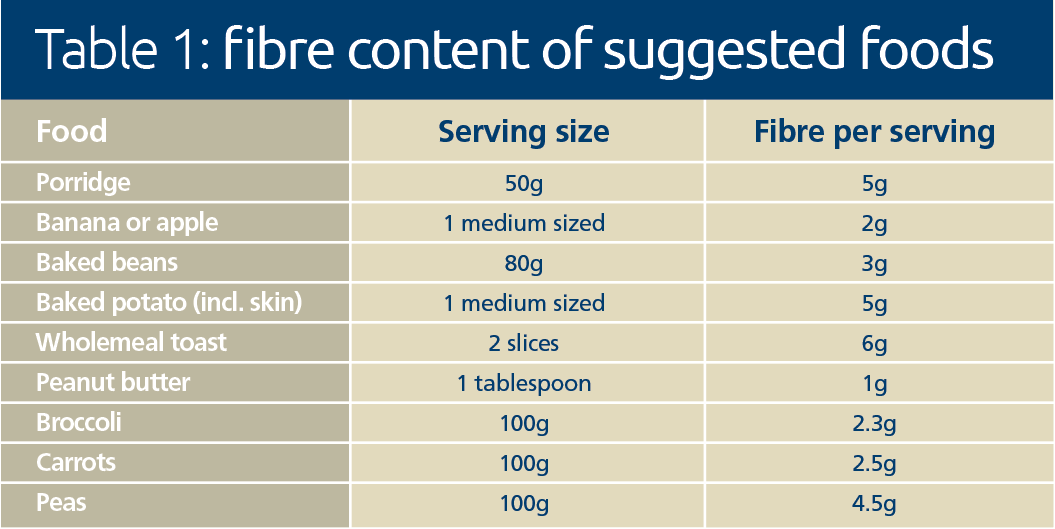Dietary and lifestyle advice should be the chief intervention for managing constipation in most patients.
In the UK, the average fibre intake for adults is 60 per cent of what it should be, meaning on average people eat just 18g instead of the recommended 30g per day. The mainstay of dietary advice is to increase fibre intake from a variety of sources (see Table 1 below), as eating too much of one type may not provide a healthy balanced diet. Alongside this, patients should be advised to drink plenty of fluids and reduce alcohol consumption. The ‘Eat Well’ section of the NHS website contains useful information regarding this.
Regular exercise is also important. Simple advice is to get out for a walk on most days when this is possible. Again, the NHS website has useful information on getting started with exercise, including specific sets of guidance that people can be directed to if they are limited by frailty, age, disability or long-term conditions.
Toilet routine is an aspect of management that may be neglected. Patients should be encouraged to keep to a regular time and place and give themselves plenty of time to use the toilet. They should not delay if they feel the urge to go to the toilet. Sometimes emptying the bowels is easier with the knees raised above the hips – the use of a low stool lifting up the knees while on the toilet has been shown to reduce straining and time taken for the bowel movement. This is a simple lifestyle intervention that pharmacy teams can suggest to patients and ask them to give feedback about whether it helps.

